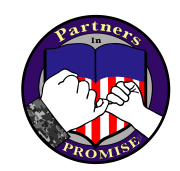
Not All EFMP Stories Are Great – But They Could Be
| EFMP Stories, Resource Partners, Resources
I don’t have a success story about how the Exceptional Family Member Program (EFMP) helped me. I enrolled because I had to, my son is autistic and has an intellectual disability. This put us as a Category 5 in the Navy and led to me being a geographical bachelor for five years. I never asked for or received, any type of help from an EFMP Coordinator.
Written by Eric Jorgensen, MS, MBA, ChSNC
EFMP Coordinators – In a Perfect World

This isn’t how it should be. I’m afraid there are a lot of service members who share my feelings, and I want to change this. EFMP could do so much for active duty and their families, if only they were given the chance and the resources. In my vision of a “perfect” world, all the branches would use Categories like the Navy does, with standard criteria. Those in higher Categories would receive more attention and outreach, but no one would go longer than 6 months without an EFMP Coordinator touching base.
The EFMP Coordinator would be active in the local community. They would build and nurture relationships with providers and specialists in the communities surrounding the installation, inviting them to come and share what they do with enrolled families. Think how much less intimidating it could be if you were told your child needs a neuropsychological evaluation and you’ve already attended a presentation where this process was explained to you.
Families with disabled children would be given a checklist of what they need to be thinking about, based on their child’s age. This checklist would have links to local resources and websites where they could learn more. Think of the last time you went to a hotel. Do you remember seeing an area where you could get pamphlets of all the local sites?
How amazing would it be if families didn’t have to guess about where to start after a Permanent Change of Station (PCS)? Better yet, what if their Sponsor had already talked to the Command’s EFMP Coordinator and has the necessary applications on hand as part of the onboarding process? Speaking from personal experience, my wife and I had no clue about services available when we moved to Maryland. We didn’t know enough to ask, and nobody volunteered the information.
Untapped Benefits
There are several states around the country that will allow a service member to keep their spot on the state’s Medicaid waiver waiting list, even if the servicemember is not currently living there. This is a HUGE advantage, but it can only be capitalized upon IF the servicemember is enrolled in the waiver program. This means servicemembers minimally need to know about the waivers – how to apply, what they are, and what they can do for the family.
Another benefit I don’t think gets talked about enough is the Survivor Benefit Plan for the disabled child. The law changed back in 2016, now if you are retiring from the military, you can make your disabled child a beneficiary of your Survivor Benefit Plan. This could have a HUGE impact on the family’s planning for when they are gone. I think the EFMP Coordinator should make sure this is explained in a way both the servicemember and their spouse understand.
I would like to see EFMP Coordinators become more proactive and involved with their installations’ tenant commands. I would love to see presentations offered on a monthly, or at the very least, quarterly basis. This is a big ask; it would require a lot of time and effort from the EFMP Coordinator.
In my opinion, the local commands have a part to play as well. They need to make sure their airmen, sailors, soldiers, and/or marines know about the events. Servicemembers and their families are often overwhelmed and under a great deal of stress already, add a disabled family member to the mix and it becomes almost unreasonable to ask them to do their own research.
Medicaid waivers and the Survivor Benefit Plan are just a few examples of what is available to active-duty military. I have a vision for when the EFM Program Offices have more than one person on staff. It can be so much more than a collateral duty. Having a more engaged Exceptional Family Member Program will help increase readiness. Service members will feel more secure knowing their families are provided for.
About the Author

Eric Jorgensen is the Founder of Special Needs Navigator and host of the “ABCs of Disability Planning” podcast. As a consultant with Special Needs Navigator, Eric helps families, individuals and professionals across the country navigate the maze of disability benefits, resources, and services. His goal is to create a new category of services to complement estate and financial planning. Eric uses his podcast to introduce his listeners to disability-related benefits, resources and services. When he’s not trying to change the world, he can be found on mountain trails or in the woods, hiking or mountain biking.





Leave a Reply